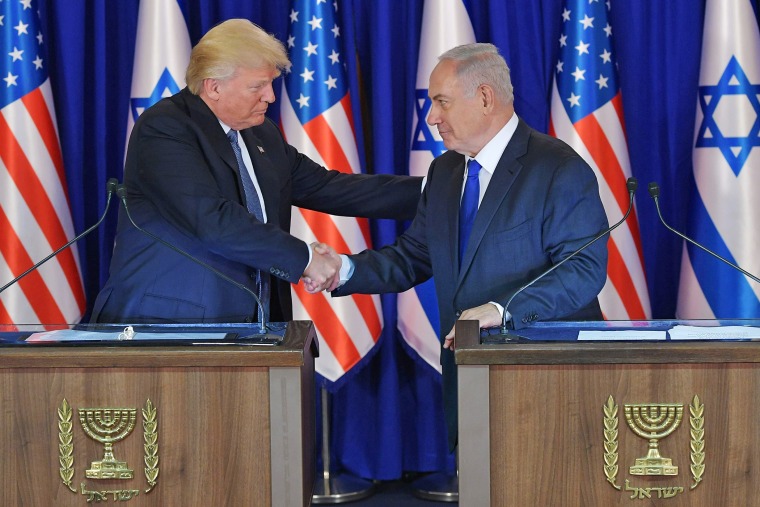As recently as May, Donald Trump seemed quite confident about negotiations between Israelis and Palestinians. In fact, the Republican president boasted there's a "very, very good chance" his administration would help strike a deal for Middle East peace.
"It's something, frankly, maybe not as difficult as people have thought over the years," the president added.
As is too often the case, Trump's assumptions about resolving intractable problems easily were wrong. In fact, he made this task vastly more difficult in December by announcing his administration's recognition of Jerusalem as Israel's capital -- a highly contentious point in negotiations, which Trump gave up in exchange for nothing, despite international warnings.
Palestinian officials responded by announcing they no longer trust the United States to oversee diplomatic talks. As Business Insider noted, Trump is still convinced he was right.
President Donald Trump doubled down Thursday on a change to the US's approach to Middle East peace while speaking with Israeli Prime Minister Benjamin Netanyahu in Davos, Switzerland, at the World Economic Forum."We took Jerusalem off the table," Trump said. "So we don't have to talk about it anymore."
That doesn't exactly work as an explanation. As Slate's Joshua Keating put it, "I may not have written The Art of the Deal, but I'm pretty sure that this is not how negotiations work. If I were applying for a job and negotiating salary, benefits, and vacation days, then told that I would be getting no vacation days at all so that the issue would be 'off the table,' I don't think this would make me more willing to compromise on salary and benefits."
Quite right. Trump made it seem as if he were simplifying the process by eliminating a point of contention. But that's not how negotiations work: Trump identified one of the most sensitive issues in the debate, took a side with little thought, and expected this to have no adverse effects.
In case that wasn't quite enough, Trump also yesterday extended his threat to cut off aid to Palestinians if they fail to "sit down and negotiate peace."
In other words, after taking steps to push Palestinians away from the negotiating table, and undermining their trust in the U.S. position, Trump is now threatening to hurt them financially unless they cede to his diplomatic wishes.
What was that the American president said about this process being less difficult than many believed?
